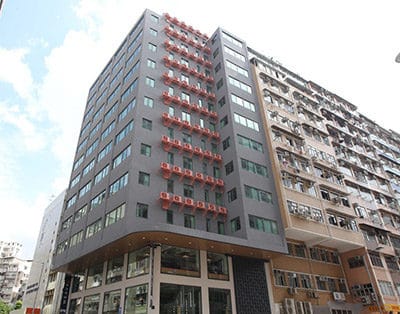
Warburg Pincus co-chief executive officers Charles R Kaye, left, and Joseph P Landy
Warburg Pincus has filed paperwork for a new pooled private equity fund to target China and Southeast Asia with a target of $4.25 billion, according to an SEC filing by the company on 24 May.
The US private equity giant’s China-Southeast Asia II fund will be the first of the NY-based firm’s funds to include a focus on Southeast Asia, in a sign that it intends to ramp up its presence in the region.
The company’s previous China fund, Warburg Pincus China, closed on $2 billion in financing in 2016, providing fresh capital to build on what is now 25 years of investing in China and to support projects such as logistics group ESR and rental housing start-up Nova.
Fund Plan Still in Early Stages
No launch date has been publicly slated for the upcoming venture, with Warburg Pincus, which has now invested over $8 billion in mainland China alone, also declining to disclose the prospective issuer size on the official filing.
Baro Investment and Securities, a Seoul-based brokerage, will assist in raising the capital for the fund.
The pooled private equity vehicle was incorporated in the US state of Delaware, according to the filing with the Securities Exchange Commission, which was done under the names of Warburg Pincus co-chief executive officers Charles R Kaye and Joseph P Landy, with chief financial officer Steven G Glenn, and managing director and general counsel Robert B Knauss also certifying the establishment of the new venture.
The US private equity giant, which has ramped up its investments in real estate, technology and consumer ventures in China, Vietnam and other parts of Southeast Asia since closing its previous fund, raised the $2 billion for its previous China fund from institutional investors and high-net-worth individuals, hitting its hard cap after just six months in the market.
Growing Footprint in the Region
The expanded geographic scope indicated in the new fund’s name reflects the growing range of Warburg Pincus’ activities in the region.
Just three months ago, the company teamed up with the Korean Teacher’s Credit Union (KTCU) and a fund managed by CITIC Securities to make one of the largest investments ever in Indonesia, with the trio of investors injecting a combined $200 million into the Indonesian mall developer and operator NWP Retail.

Warburg Pincus-backed Weave opened its first co-living project in Hong Kong last year
In a Singaporean investment that has given it regional, and more recently global reach, Warburg Pincus in late 2017 led a management buyout of ARA Asset Management in Singapore in a deal that valued the real estate investment manager at $1.3 billion.
Late last year also saw the US equity giant make its first foray into Asia rental accommodation outside of mainland China, investing an initial $181 million of a total $413.5 million in a partnership with Hong Kong co-living provider Weave Co-living.
In Vietnam, the company invested $200 million just over a year ago in a partnership with state-owned builder Becamex IDC Corp to create the largest logistics and industrial real estate developer in the country.
Big Appetite for China
The US private equity firm, whose first investment on the mainland was in 1994, has continued to pursue its interest in China, investing in logistics start-up NewEase, real estate brokerage Lianjia and rental apartment provider Mofang, among other market segments.
In the last week of 2018, it wrapped up a deal to invest a maximum of $300 million in a new joint venture with Shanghai-based urban renewal operator Creater to acquire and redevelop real estate projects in China’s first-tier cities.
This came only two weeks after it formed a $1 billion joint venture with Beijng-based Hande Group for investing in distressed and “special situations” real estate opportunities in mainland China.
PE Giants Continue to Raise Cash
Manhattan-based Blackstone, another private equity heavyweight operating in Asia and one of Warburg Pincus’ biggest rivals, forged the largest-ever fund dedicated to property investments in Asia in June of last year.
Blackstone Real Estate Partners Asia II (BREP II), which held a final close of around $7.1 billion of capital commitments, was the firm’s second opportunistic real estate vehicle in Asia.
Leave a Reply